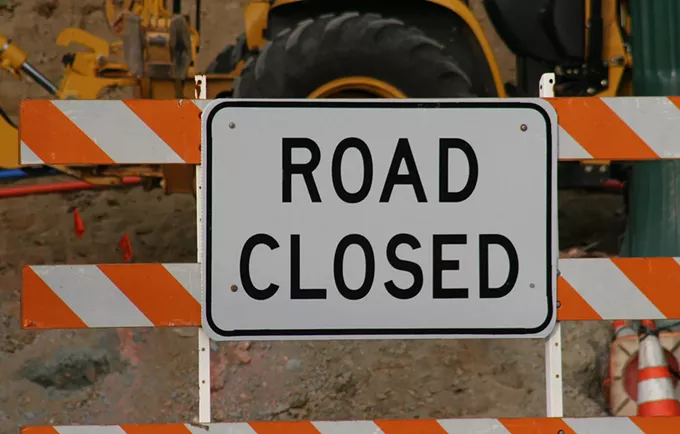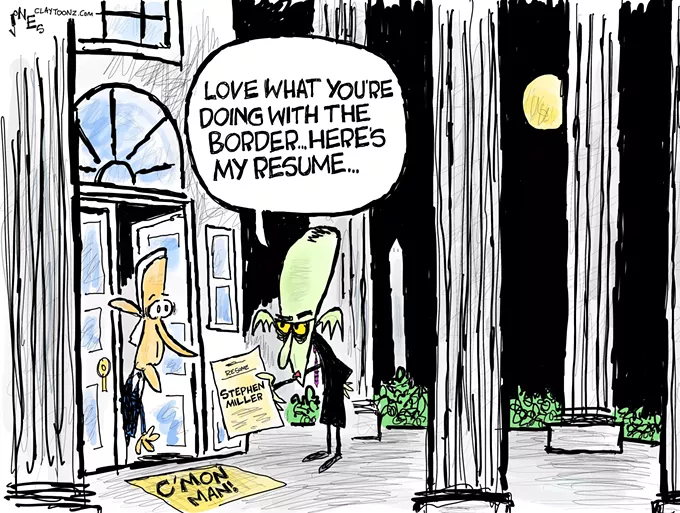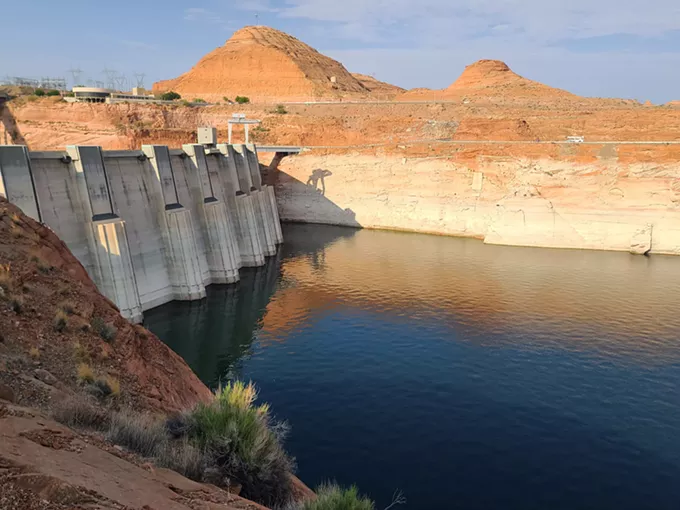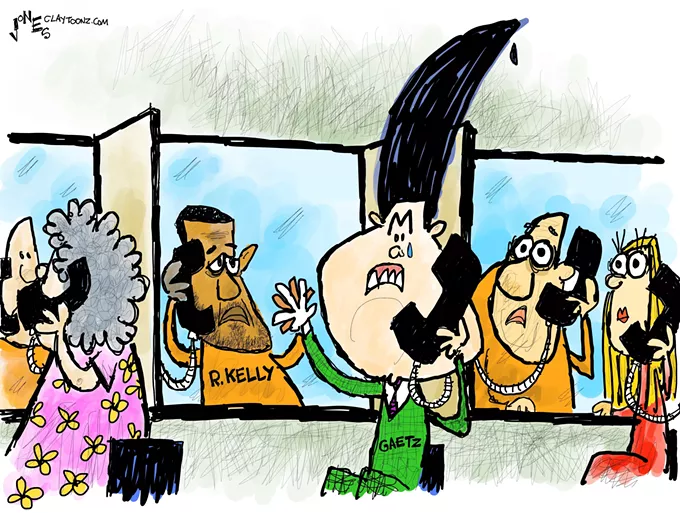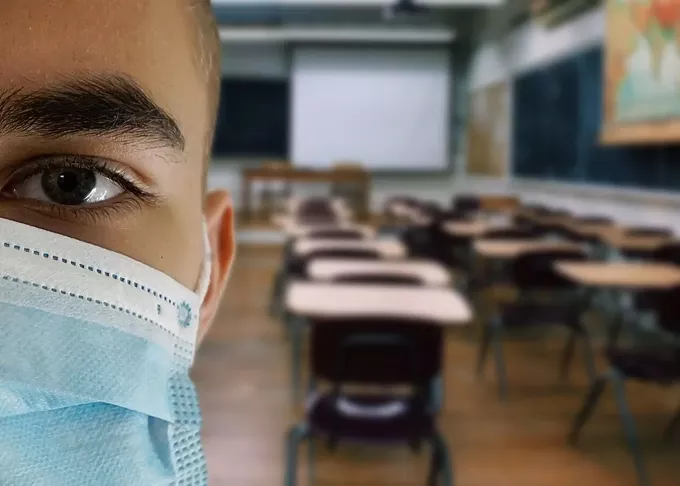Thursday, September 30, 2021
Visitors to Saguaro National Park West will see scenic roads closed from Oct. 4-30 for construction.
Access to Bajada Loop Drive from the Hugh Norris Trail Head to Golden Gate Road will be closed from Oct. 4-15.
After those improvements, the Bajada Loop and its amenities, such as the Sus Picnic Area, Hugh Norris Trailhead, Valley View Overlook Trail, Bajada Wash Trail and all of Golden Gate Road (Signal Hill, Ez-Kim-In-Zin, Sendero Esperanza) will be closed from Oct. 16-30.
“This will help ensure the safety of the crew working on the one-lane road, as well as any visitor who may not be aware of the closure notice,” Saguaro’s Facility Manager Richard Goepfrich said.
All traffic to these locations will be prohibited, including pedestrians and cyclists. Park officials said heavy machinery in these areas will be dangerous for all traffic. Large construction vehicles will need to use the entire one-lane road for easy transportation.
Visit nps.gov/sagu/planyourvisit/conditions for updates on construction.
The Marana Unified School District Governing Board ended their special meeting on Wednesday with no action on requiring face masks on Marana school campuses.
Board member John Lewandowski called the Sept. 28 emergency meeting on the previous day and planned to make a motion for the institution of a mask mandate. Marana school campuses have gone to mask-optional status since their previous mandate ended on Sept 29.
New data from a recently released study by the CDC, co-authored with Pima County, showed K-12 schools without mask requirements were 3.5 times more likely to experience a COVID outbreak. Data was taken from 999 public schools in Pima and Maricopa counties.
Board member Hunter Holt surprised the Board on Wednesday by making a motion to relinquish the authority to institute a mask mandate to Superintendent Dr. Dan Streeter.
“My motion is to give Dr. Streeter sole authority to implement and remove any sort of mask mandate from here on out,” Holt said.
Holt said he trusted Streeter to make the proper decision. He also said that COVID case numbers have improved in Marana. The Arizona Department of Health Services has recorded a slow decrease of overall COVID cases in Pima County since the August surge. Pima County K-12 schools are still considered to have high transmissibility, according to ADHS.
“This is really ridiculous. John called this meeting so the five of us could vote on re-imposing a mask mandate and now Hunter has come in from left field and has thrown this curveball,” said board member Tom Carlson. "Obviously, Dr. Streeter doesn’t know what to say on this.”
Streeter seemed confused by the surprise motion and recommended the Board vote no. The motion to give Streeter mandate authority failed.
Lewandowski then asked the board to extend the mask mandate. The motion was not seconded. Marana Unified School District will remain mask-optional until the board decides otherwise.
“I was very disappointed,” Lewandowski said after the meeting.
“I thought I was doing what was in the best interest of kids and staff for safety.”
Lewandowski pledged to ask Board President Dr. Maribel Lopez to revisit the subject at a future meeting but said she could choose not to include it.
Banner Health’s Intensive Care Unit capacity has been unseasonably high for the past four weeks, said Banner Health Chief Clinical Officer Dr. Marjorie Bessel said in a Wednesday press conference.
The total ICU patients at Banner exceeds that of the summer 2020 COVID surge.
“The main problem is that we have too many COVID patients in our hospitals,” Bessel said.
Bessel cited recent figures showing that 90% of COVID patients in ICU beds and on ventilators are unvaccinated.
Banner’s problems are compounded by the difficulty of keeping skilled staff. Bessel said hospital staff are worn out after fighting COVID for the past year and a half.
Banner is looking to fill positions for nurses, respiratory therapists, clinicians, and physicians. Bessel said this is the most necessary resource strained by COVID surges. Banner has been and continues to hire out-of-state contract labor every week to meet hospital needs.
Bessel pleaded with the unvaccinated public to make a vaccine appointment ahead of the projected winter surge. It is expected that COVID, flu and respiratory virus infections will increase during the winter.
The Pzifer vaccine for children aged 5 to 11 is under evaluation and Bessel said she expected to hear results as soon as Halloween.
“For individuals who are under the age of 5, my understanding is that those studies are still ongoing and do not have any date when scientific data might be available,” Bessel said.
While Pfizer vaccines for children under 12 are being evaluated, booster shots are now available for qualifying individuals. Pfizer booster shots can be found at local pharmacies. The FDA and the CDC expanded their vaccine recommendations to allow adults over 65, individuals with underlying health conditions, and essential workers to receive the Pfizer booster shot.
The booster shot is only recommended for individuals who received the original Pfizer vaccines. So far, health officials have not made a call on booster shots for the Moderna or Johnson & Johnson vaccine.
“So all health care systems are able to be available for you and your families that need us, please get vaccinated against COVID,” Bessel said.
Bessel also warned the public about West Nile virus. She said sister hospitals are experiencing more cases of West Nile virus due to a heavy monsoon season creating a rich breeding environment for mosquitos that carry the virus.
“If you're going outside and you live in an area that has a lot of mosquitoes, wear mosquito repellent,” she said. “Also, if you have a backyard or anywhere else where there's standing water, please try and make sure that you reduce that.”
According to the CDC, people infected with West Nile virus experience fever, severe illnesses, and even death. There are no vaccines or medications to treat West Nile virus.
Education advocacy groups on Tuesday filed hundreds of thousands of signatures to block Gov. Doug Ducey’s sweeping income tax cuts, the largest in state history, from going into effect and forcing a public vote on them.
For that to actually happen, at least 118,823 of the 215,787 signatures the Invest in Arizona coalition submitted must be deemed valid by elections officials. If they are, Arizona voters will decide the fate of the tax cuts in November 2022.
Ducey’s income tax cuts, which serve as his legacy policy achievement during his two terms as governor, dramatically reform Arizona’s tax system. Instead of a progressively graduated system with a maximum rate of 4.5%, Arizona will shift to two income tax rates: 2.55% for people who earn $27,272 annually and 2.98% for those who earn more than that. Legislative budget analysts estimate those cuts will cost the state about $1 billion in revenue.
The median household income in Arizona is about $62,000, which will realize a tax savings of $42 under the new proposal. The benefit of the tax cut skyrockets as income increases: Households making at least $500,000 will save $10,000; those making at least $1 million save nearly $45,000; those making more than $5 million will save nearly $350,000 a year. (Those estimates by legislative budget analysists also include the effects of legislation capping the maximum income tax rate at 4.5%, even for those subject to the Invest in Education surcharge. That law will go into effect.)
The referendum is a reaction to the tax cuts Ducey championed, and which serve as his legacy policy achievement during his two terms as governor. The tax cuts themselves came in response to, and were designed to blunt the effect of, the Invest in Education Act on wealthy Arizonans. That measure, which voters approved in 2020, imposes a 3.5% surcharge on income greater than $250,000 for individuals and $500,000 for couples, with the money directed to public schools to increase teacher pay and boost overall funding.
Wednesday, September 29, 2021
After Maricopa County Superior Court Judge Katherine Cooper struck down several laws wedged into the Arizona Senate budget reconciliation bill, public school systems are now free to mandate masks on campus.
The Marana Unified School District Governing Board is hosting a virtual meeting tonight on Zoom to discuss extending the district's mask mandate on all campuses. Board member John Lewandowski called the emergency meeting on Sept 27.
“Now that the law has been deemed unconstitutional, I wanted to give the board the chance to discuss it,” Lewandowski said. “This is something I care about and I want to move forward.”
Watch the Marana governing board meeting livestream on their YouTube channel: https://www.youtube.com/c/maranaunifiedschooldistrict06
Flowing Wells, Amphitheater and Tucson Unified school districts quickly chose to continue with indoor mask requirements.
Amphitheater Superintendent Todd Jaeger said they are continuing to follow guidance from the Centers for Disease Control and the Pima County Health Department and requiring masks.
The CDC recently released a study co-authored with Pima County showing that K-12 schools without mask requirements were 3.5 times more likely to experience a COVID outbreak. The study used data from 999 public schools in Pima and Maricopa County.
Senate Bill 1819 was passed with a variety of non-budget-related provisions, including the prohibition on mask mandates. Judge Cooper said these provisions were not pertinent to the budget and therefore unconstitutional in her ruling on Sept 27. This ruling came two days before the laws were scheduled to go into effect on Sept 29.
WASHINGTON – New projections show that Lake Mead and Lake Powell could reach “critically low reservoir elevations” sooner than expected, spurring experts to say that “bold actions” will be needed to change course.
The Bureau of Reclamation report released Thursday shows an 88% chance that Lake Powell could fall below 3,525 feet by next August, a level that would endanger hydropower production, with chances Lake Mead will hit critical levels in the next few years.
The five-year projection is grimmer than estimates released just two months ago, and shows that a drought contingency plan triggered earlier this year by low reservoir levels, while it was aggressive, may not be enough, one official said.
“We need to take more actions in both Lake Powell and Lake Mead,” said Thomas Buschatzke, director of the Arizona Department of Water Resources. “More actions mean finding a way to get people to conserve their water, or more mandatory reductions to stabilize the lake.”
That was echoed Thursday by Sarah Porter, director of the Kyl Center for Water Policy as Arizona State University’s Morrison Institute.
“We need to take additional bold steps to keep Lake Mead from declining precipitously,” Porter said.
The Bureau of Reclamation report estimates river levels in the lower Colorado River basin over the next five years, particularly the levels needed for the two main reservoirs in the basin to keep functioning – 3,525 feet above sea level in Lake Powell and 1,025 feet in Lake Mead.
The latest estimates say there is an 88% chance Lake Powell will fall below the critical level by next August, with odds falling to 53% in 2023 and falling to 41% by 2026. For Lake Mead, the chance of falling below the critical level is 12% in 2024, rising to 22% in each of the next two years.
Both estimates are several percentage points grimmer than a five-year forecast released in June, when analysts included water releases that were expected from upper basin dams would help the downriver reservoirs. Because those releases are still being worked out, they were removed from the latest forecast.
Tuesday, September 28, 2021
A Maricopa County judge struck down a ban on public schools imposing face mask mandates and a host of other policy changes that lawmakers inserted into the state budget, and with them, may have forced a fundamental change in the way the legislature does business when it passes its annual budget each year.
The ruling comes two days before the mask mandate prohibition and various other changes to state law were to go into effect.
Along with the ban on face mask mandates, the ruling strikes down several other laws pertaining to COVID-19 mitigation measures and the operation of public schools. That includes laws banning “critical race theory” in K-12 schools, barring colleges and universities from requiring COVID-19 vaccinations or testing of students, prohibiting K-12 schools from requiring students to receive vaccines that have received emergency authorization from the U.S. Food and Drug Administration, and barring cities and counties from requiring “vaccine passports.”
And Superior Court Judge Katherine Cooper struck down an entire budget bill that included wide-ranging measures on election integrity laws and pandemic-related business regulations.
The lawsuit, filed by a coalition of left-leaning advocacy groups and Democratic political figures, argued that several budget bills passed by the legislature in the waning days of the 2021 session violated a provision of the Arizona Constitution known as the single-subject rule. That provision mandates that bills passed by the legislature embrace “one general subject,” and that that subject be clear in the title of the bill.


